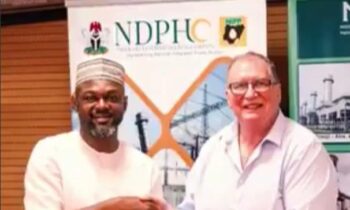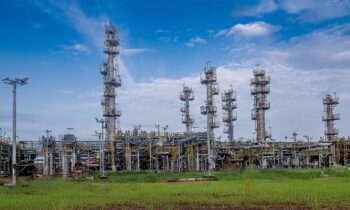
Olusola Bello
The West Africa Power Pool (WAPP) has mobilized approximately $5 billion to complete nine cross border interconnections and aims to interconnect all 14 countries by 2024.
The organization was able to do this through its partners including the World Bank.
This has improved access in several countries of the region, to the extent that a country like Côte d’Ivoire, is now able to sell excess electricity to other countries that need it.
A regional solution that goes beyond the efforts made at the national level is imperative to ensure a sustainable energy future in Africa, the World Bank has said.
“Our region has immense electrical energy resources, which are capable of meeting demand for many years. But they are concentrated in a few countries that sometimes lack the means to develop them. Through interconnection, we are making power available to countries,” says Apollinaire Siengui Ki, Secretary General of the West Africa Power Pool (WAPP).
He said: “Connectivity makes it possible to supply the amount of energy needed at a lower cost.”
Created in 1999, WAPP brings together 14 countries. Its mission is to promote and develop infrastructure for the production and transmission of electrical energy and to ensure the coordination of power exchanges between the member states of the Economic Community of West African States (ECOWAS).
According to World Bank, for such a regional market to work, significant reforms are required at the country level to enable market stakeholders to effectively and efficiently play their roles as reliable buyers and reliable suppliers of electricity.
To help Burkina Faso, Côte d’Ivoire, Guinea, Liberia, Mali, and Sierra Leone implement the sectoral reforms needed to successfully create this regional electricity market, the World Bank provided $300 million in financing approved in July 2020.
“The goal: to support the implementation of the December 2018 ECOWAS directive on securing cross border trade in electricity, which is based on three main pillars: increasing confidence in the application of electricity trade agreements by supporting mechanisms to improve payments and the supply of electricity; implementing least-cost supply decisions for electricity that take into account regional options and promote competition; and promoting transparency by addressing the issue of the solvency of national electricity companies and keeping the market informed of key investment decisions that may impact supply and demand.”
“The World Bank has consistently prioritized the development of interconnections and regional electricity trade in order to reduce the costs of electricity and therefore to limit the sector’s fiscal burden and to lower costs for businesses and consumers,” says Ousmane Diagana, World Bank Vice President for West and Central Africa.
“Pooling the region’s diverse green resources, such as hydropower in Guinea and Liberia and solar energy in the Sahel, will help build a more resilient system that will be better able to adapt in the long run to the various shocks that the region faces.”
By 2030, regional electricity consumption is expected to increase by 100%. Meeting this exponential growth in demand by expanding the existing electricity mix would increase carbon emissions by an estimated 102%. But closer regional cooperation will make it possible to adopt cleaner technologies and reduce the carbon intensity in power generation by 32%. Regional trade will thus enable the development of renewable energy projects that are too large to be accommodated by a single country’s power system. Also noteworthy is the approval of $465 million of new financing in June 2021, which will help increase renewable energy integration and improve the operation of the regional power grid through battery energy storage—an innovative initiative that will boost investment in renewable energy.
|
“We want to move out of the hydrocarbon era and into green energy,” says Gesler Murray, Liberia’s Minister of Mines and Energy. “Liberia is in a region that is rich in solar energy, and we also have many rivers on which various types of hydroelectric systems could be installed.”
The Covid 19 pandemic has prompted rapid growth in the use of digital platforms and applications in all sectors and at all levels. But digital transformation cannot be achieved in the region without better access to electricity.
The time has come to optimize the management of energy resources in West Africa in order to improve the daily lives of the region’s inhabitants and enhance the productivity of its economies, he said.





